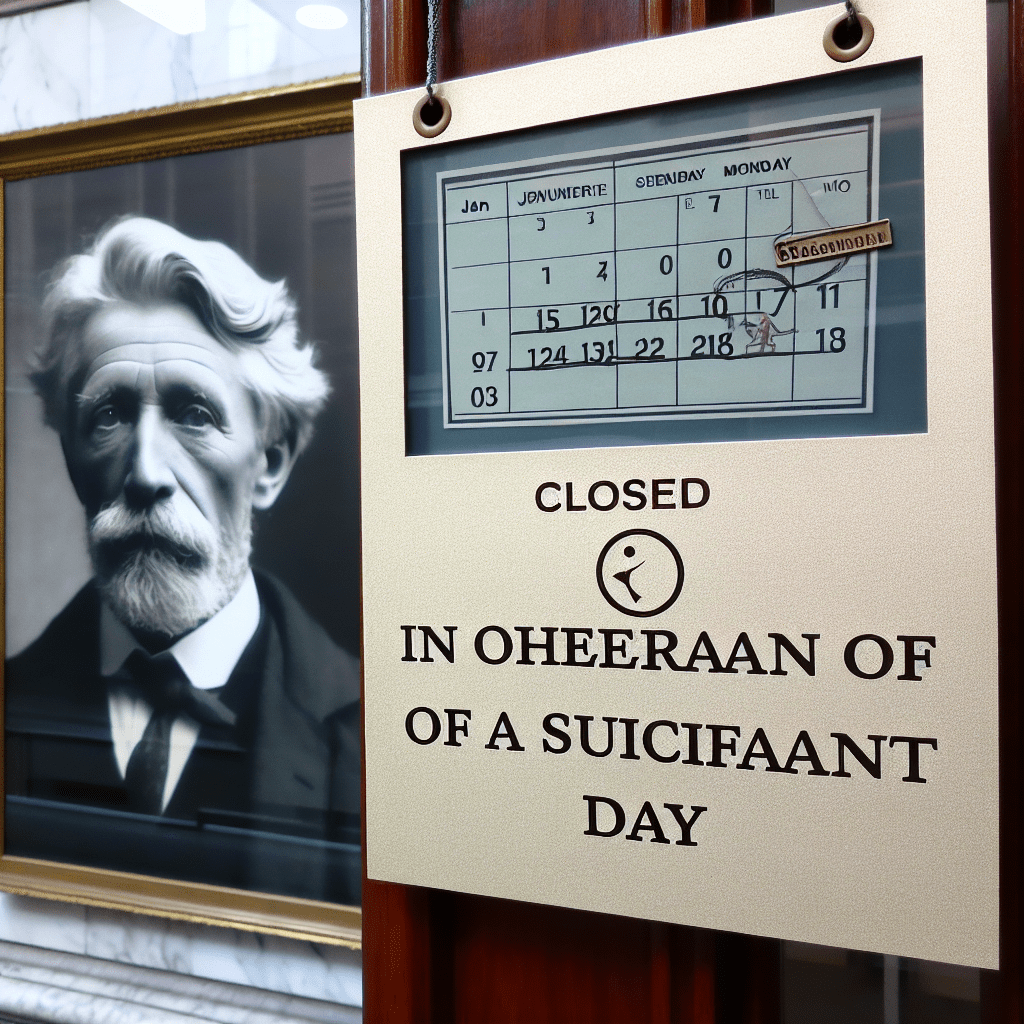Understanding MLK Day and Bank Operations
Martin Luther King Jr. Day (often abbreviated to MLK Day) is a federal holiday in the United States that is observed on the third Monday of January each year. This day commemorates Dr. Martin Luther King Jr., an instrumental figure in the American civil rights movement who fought for equality and justice for African Americans. It is a day marked by reflections on the progress made in civil rights, as well as community service activities that honor King’s legacy of promoting peace and equality. Due to it being a federal holiday, MLK Day has implications for the operations of various public and private sector entities, including financial institutions like banks.
The Status of Banks on Federal Holidays
Federal holidays in the United States usually lead to the closure of government offices, including those that regulate banking operations such as the Federal Reserve. Since banks closely follow the Federal Reserve’s schedule, they generally shut their doors on federal holidays as well. MLK Day, like other official public commemorations such as Independence Day or Thanksgiving, is one of the days when banks typically do not operate.
However, not all financial institutions observe federal holidays in the same way. While the majority of traditional brick-and-mortar banks close on MLK Day, some branches within retail stores or supermarkets may still open to offer limited services to their customers. Moreover, online banking and ATMs remain accessible, ensuring that customers can conduct some transactions even when physical bank branches are closed.
What This Means for Banking Customers
The impact of bank closures on MLK Day can vary depending on the needs of different customers. For those requiring in-person services such as access to safe deposit boxes, notary services, or face-to-face consultations with banking officers, planning around these closures is necessary to avoid inconvenience. Transactions needing bank personnel involvement, like processing a large cash withdrawal or deposit that exceeds ATM limits, must also be scheduled around this holiday.
Nevertheless, for many individuals, MLK Day doesn’t pose significant disruption to their banking activities. Online and mobile banking has significantly reduced reliance on physical branches. Customers can check balances, transfer funds, pay bills, and more through digital interfaces that operate 24/7.
Alternative Banking Options During Holidays
While MLK Day may result in temporary bank closures, customers are not entirely cut off from banking services during this and other federal holidays. Automated Teller Machines (ATMs) remain operational, allowing people to withdraw cash as needed. Moreover, online banking platforms and mobile banking apps continue to provide various transactional capabilities outside regular business hours.
For clients who seek in-person advice or require services that demand direct interaction with a bank representative, these conveniences are a reminder to address such needs ahead of the holiday or wait until banks reopen.
Impact on Bank-Related Activities
Effective planning around MLK Day can also have implications for financial deadlines. Customers expecting to clear checks or awaiting the processing of certain transactions should account for delays due to the closure of banks on this day. Loan processing times may be extended, direct deposits could be delayed, and bill payments that rely on bank transfers might need to be scheduled ahead of time to avoid late fees or other complications.

